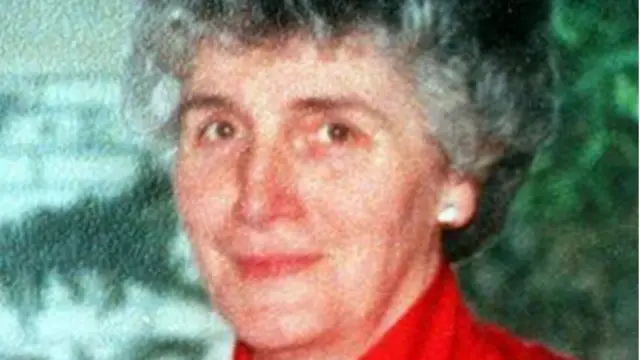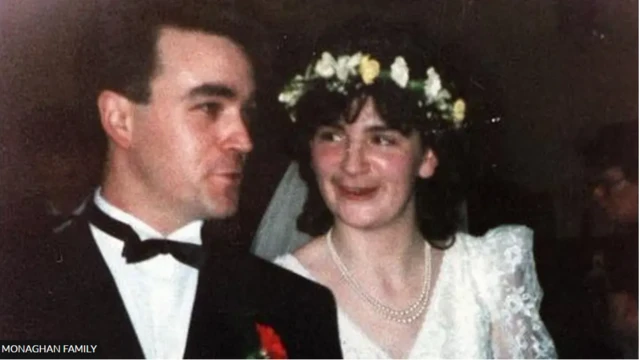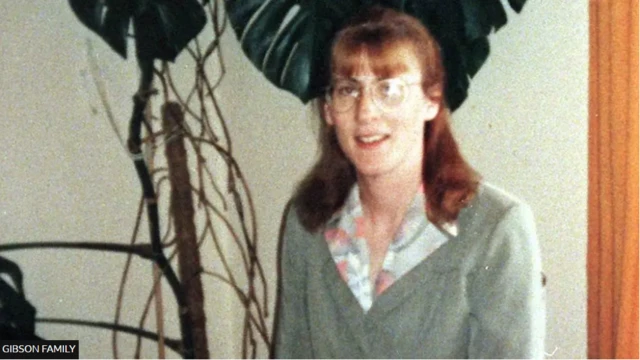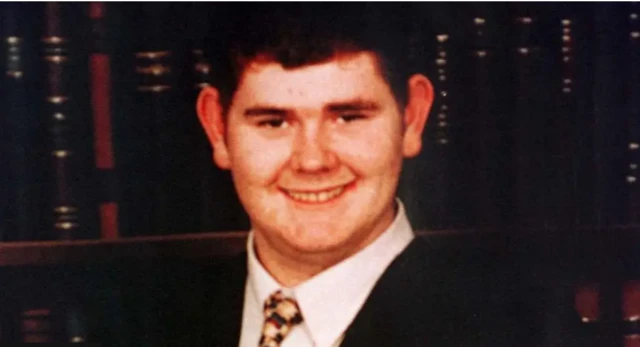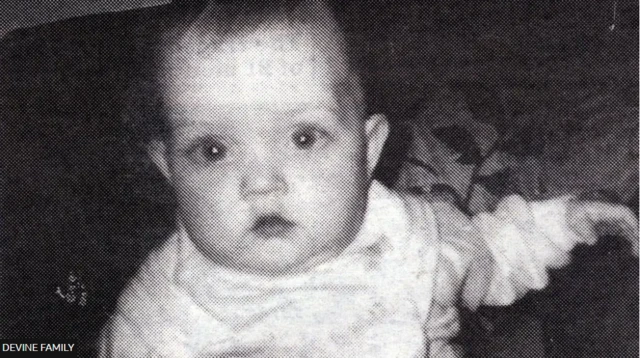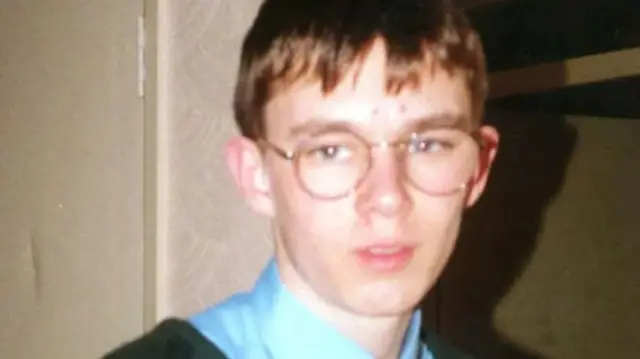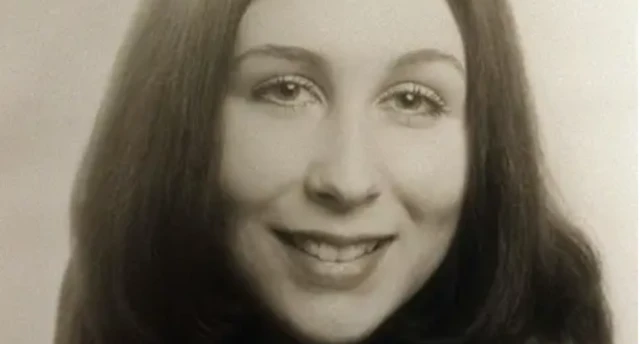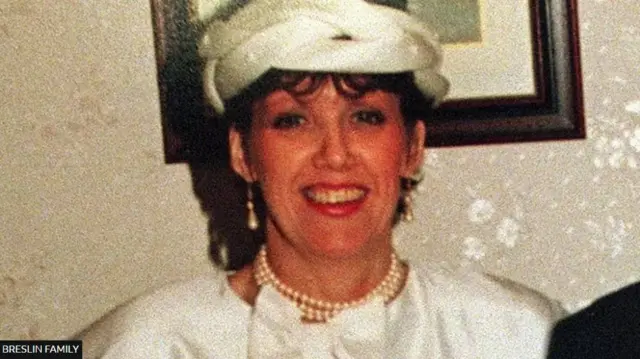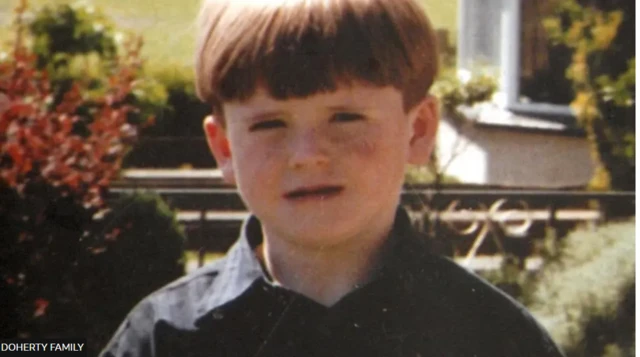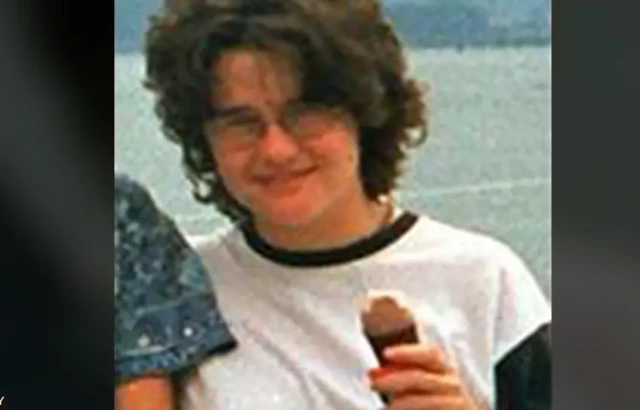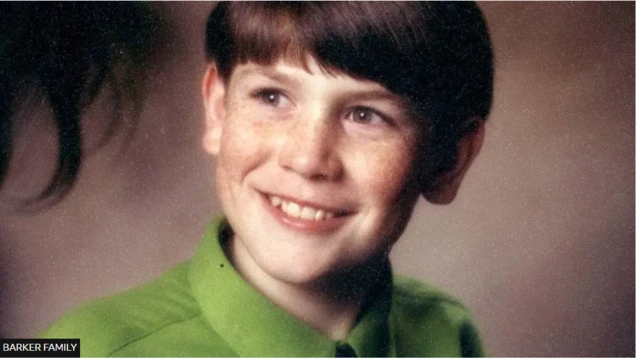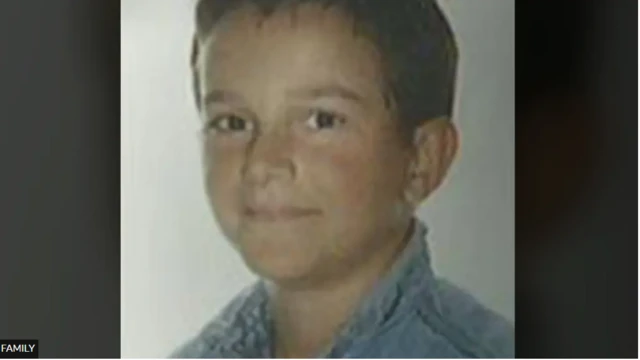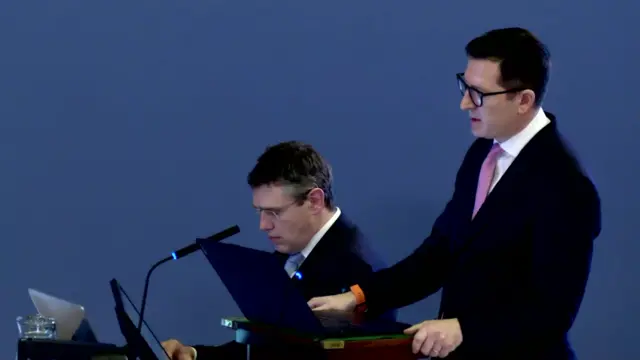Good people who did 'not deserve such cruelty'published at 13:06 GMT 28 January
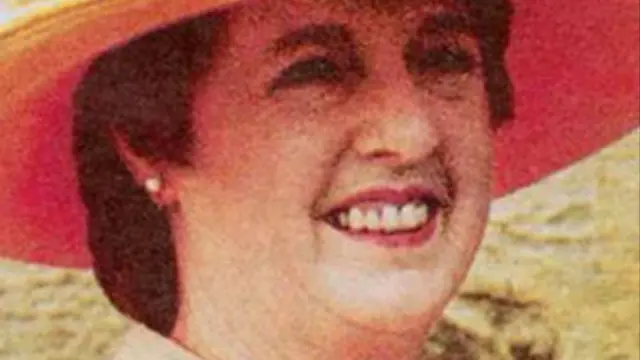 Image source, Hawkes family
Image source, Hawkes familyOlive Hawkes, 60, was killed while shopping in the town. She was the wife of a farmer named Percy.
Olive's family describe her as "the glue" that kept the family together.
Her death "ripped the family apart".
Olive's family say it took them "a long time before we could recall the happy memories that were replaced with the trauma of mum's death".
"Now we can cherish everything that mum and dad did to create our loving home and give us a wonderful childhood.
"We are so grateful that their influence has enabled us not to hold onto anger or bitterness and try to live as they would have hoped".
"She and dad were genuinely good hard-working rural people who, like so many others, did not deserve to experience so much cruelty".
